Ways to determine an infants caloric needs

Learn how to determine your baby’s caloric needs, including the calories in breast milk and formula, to ensure your infant gets the right nutrition for healthy growth.
Children under 1 year old, the immune system is still quite weak, so they often have a variety of health problems, especially respiratory diseases. Progressive illness can lead to a build-up of respiratory mucus, causing chest pain in young children. Early detection and timely treatment will help your baby avoid potentially dangerous complications.
For those who are parents for the first time, it is inevitable that the times of panic, not knowing how to deal with when the child has unstable symptoms of health. Typically, chest pain, although this is not a new problem, but without the basic knowledge, you will not easily recognize and have the right solution.
Physiologically, the sinuses are lined internally by the mucous layer. This layer plays a role in constantly producing mucus, which is responsible for cleaning and protecting the sinus system. Once infected, the lining becomes swollen and increased secretion even more. The secretions accumulate in the airways, causing blockages that can lead to chest pain. In addition, swelling of the lining of the airways also limits air circulation.
Accordingly, this problem occurring in children under 1 year can be caused by the following common causes:
The immune systems of premature or preterm babies often work poorly than usual. Therefore, babies often get sick and it is more difficult to recover their health. The earlier the baby is born, the higher the risk of infection with respiratory pathogens from the outside environment.
On the other hand, children under 1 year old are still in the stage of growth and perfecting functions in the body, including the immune system. As a result, babies often do not have enough resistance to disease.
As mentioned, the respiratory pathogens that can be cigarette smoke, gasoline smoke, cooking activities or activities can all harm your baby's health. Once inhaled in stimulants filled with these toxic chemicals, the child's respiratory mucosa will increase mucus secretion more, making it difficult for the baby to breathe and feel heavy in the chest.

A cold is a viral condition that affects organs such as the sinuses, nose and oropharynx, leading to many different symptoms, including a productive cough, runny nose. Children under 1 year old often children cannot actively blow their nose, sput out sputum, so respiratory secretions accumulate in the chest area, making children feel uncomfortable.
When a child has asthma, the nasal cavity and respiratory lining become inflamed almost all the time, allowing more mucus to be secreted than usual, causing airway obstruction . Uncontrollably produced too much mucus can build up in the chest resulting in chest pain.
According to experts, when a child shows chest pain, it is a sign that the baby's body begins to respond to pathogens. Accordingly, children with this problem often have recognizable symptoms as follows:
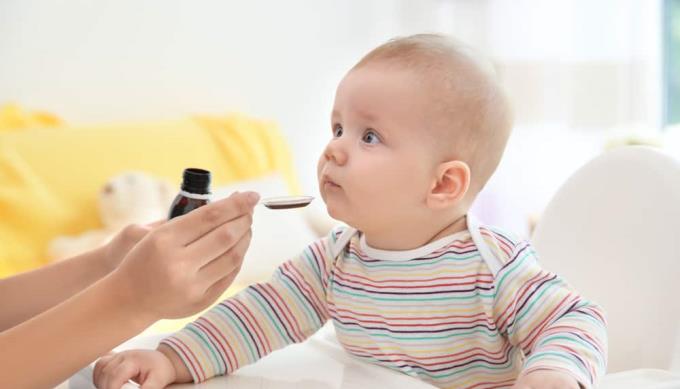
If your baby is coughing more than usual, this can be a sign of concern. This is because respiratory mucus has accumulated too much in the chest and a cough appears as a way to alleviate the discomfort.
The mother observed that the baby did not sleep very often for a few days and that the baby often seemed irritable, fussy and fussy, it was likely that the baby was being bothered by chest pain.
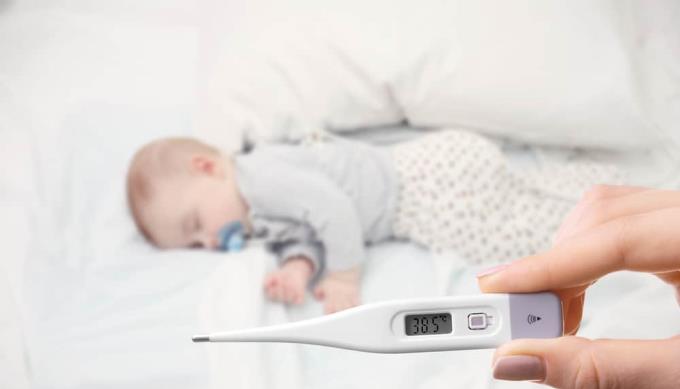
Fever can serve as a warning sign for young children to have chest pain caused by pneumonia and the common cold . This is also a sign that the child's body is responding to the pathogens.
When infected, often the child's sense of smell as well as other senses are affected. Therefore, your baby may not like or feel too "excited" about the delicious meals you prepare as before.

Discomfort and mood swings are signs that the child is feeling uncomfortable. If you observe that the baby is fussy and constantly crying, the mother should check if the baby is having any health problems or not. Because it may also be due to the child suffering from chest pain.
You should remember that with young children, who have not been able to speak clearly, expressions such as irritability or crying will be the baby's way of telling their mothers what they want. It is important that parents should not ignore and examine their children carefully to avoid unfortunate consequences.
If your child has difficulty breathing and this makes it difficult for your child to sleep or sleep, take him to the hospital for a checkup as soon as possible. Since this could be an early warning sign of this issue.
Besides respiratory symptoms, mothers should also observe if the child shows signs of fatigue, drowsiness all day or urinating less than usual. Because these are also problems that can occur when babies have chest pain. Once discovered, you need to bring your baby to see the doctor as soon as possible to take timely measures.
Chest pain in young children is related to the respiratory tract and causes a variety of symptoms. To improve this situation, moms can try simple but effective home remedies. Especially, the solutions given below are very safe for children and do not have unwanted reactions.
It cannot be denied that breast milk is the most perfect food that gives children many wonderful benefits. Moreover, through breastfeeding you are "sharing" with your baby antibodies to fight disease from the milk source.
This makes breastmilk much better than the supplements or functional foods on the market. To provide the necessary energy and nutrients to help your baby cope with the infection and recover quickly, mothers should continue to breastfeed regularly!
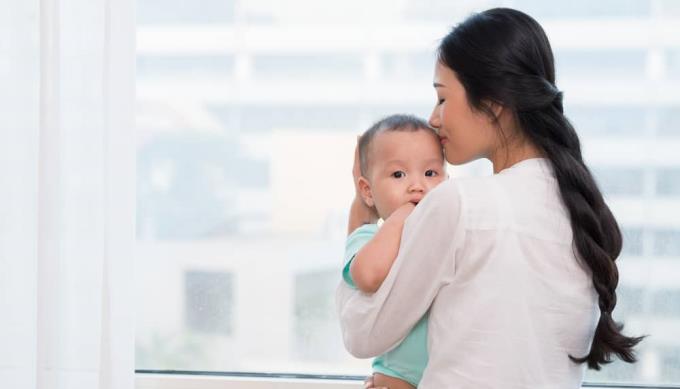
In the case of a baby with chest pain, the mother can resolve it by keeping the baby upright and tilting his head back slightly. This can cause the respiratory tract mucus to disperse without being able to accumulate in one place.
This is a method of using hands, tools or a combination of both to help the lungs expand well to expel respiratory mucus from the body, from which children breathe more easily and reduce uncomfortable wheezing.
This remedy is applied in a number of respiratory diseases, including chest pain. To do this, first the mother should let the baby lie on one side or let the baby sit with his head bent forward slightly or carry the baby on his shoulder. Next need to determine the location of the pat, starting from the lungs (can be estimated as the back-to-back point), pat it gently from here.
In sputum patting technique, the mother's hand cambered again to create space so that when patting the baby, it doesn't hurt. Mother should use wrist force to pat so that the baby's chest is vibrating lightly with each beat. This process will take about 5-10 minutes each time. When the child is over, he or she may cough a lot or even vomit phlegm.
If in doubt, you can ask your doctor or medical staff to give you detailed instructions so you can apply the correct action.
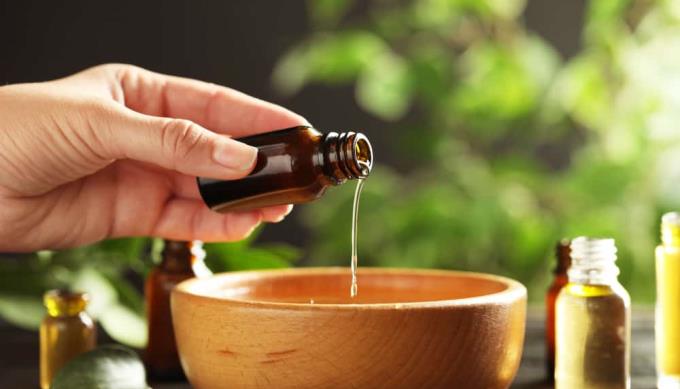
Eucalyptus oil or eucalyptus oil is extracted from the leaves of eucalyptus, a medicinal herb used to cure many diseases. One of the great benefits of this oil is to warm breasts and loosen phlegm. Moreover, eucalyptus oil is also quite useful when used in the case of a child with a prolonged cough or cold.
It is quite common to use the mother to put the oil on her hands, rub her hands together and then press against the baby's chest to relieve cold symptoms. The aroma of essential oils will bring relaxation to the oropharynx, while effectively thinning mucus.
However, when using, mothers should use a small amount to avoid discomfort and fussiness. Another indirect way to use essential oils is to add it to bath water or an air humidifier .
It sounds simple, but this is an effective way to help children feel more comfortable! If your baby has a stuffy nose or chest tightness, you can soothe your baby by sitting in a basin of warm water. At this point, the airway capillaries will dilate to help open the airways.
On the other hand, the warm steam also works to thin out phlegm and help mucus easily remove from the body. As mentioned earlier, for added effect, you can incorporate some natural essential oils.
Besides taking a warm bath , you can also benefit from the steam through a steam bath. The method is also quite simple, just boil a little water then put it in a large bowl or bowl. Then the mother holds the baby in her arms and let the baby inhale the warm steam as much as possible. Note that when you do this, you need to be very careful not to burn your baby.
If you do not want to use the steam in this way, take your baby to the bathroom, close the door, turn on a hot shower, and sit with your child in the room for 10–15 minutes.
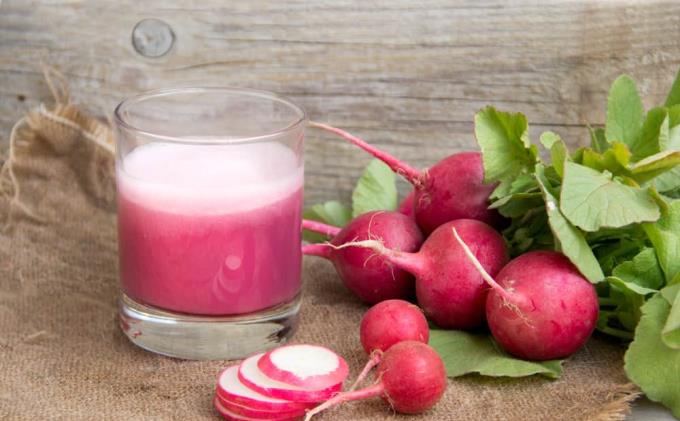
Not only is the delicious and nutritious food but also radish is a valuable medicine. In fact, this root vegetable has several properties that may be helpful in dealing with chest pain. You can do it at home and give it to your child to improve inflammation in the respiratory mucosa.
In addition to drinking directly in moderate amounts as directed by a doctor, you can rub radish juice directly onto the chest area to reduce the accumulation of respiratory tract mucus in the child's chest.
The easiest way to "deal with" chest pain is to use a clean towel dipped in hot water a few times, squeezed it well and then applied it to your chest. Note that mothers should make sure the towels after dipping in hot water are not too hot to avoid burns.
"Prevention is better than cure", to protect children, mothers can refer to the following tips:
In order for your child's towels to not be the “shelter” of germs, it's best to wash them often. In addition, mothers should be concerned with choosing non-irritating detergents . Ideally, mothers should choose products that do not contain fragrance.
After washing is finished, put the laundry in the dryer, then dry it in the sun or iron it before giving it to your child. This is a natural but effective way to make sure baby towels and towels are dry and clean.
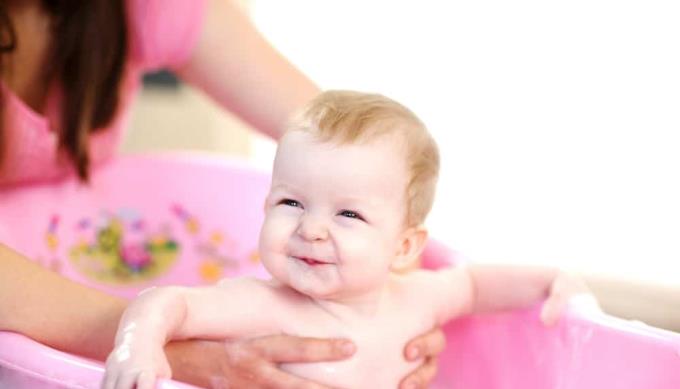
This not only stops at personal hygiene for the baby, but also must ensure the surrounding environment is safe and does not exist disease-causing factors. That way, you can reduce the risk of children suffering from respiratory diseases and avoid chest pain due to the accumulation of mucus.
If you or any member of your family has a cold or is coughing from pneumonia, you should wear a medical mask . This will limit the risk of spreading germs, avoiding infection for the baby.

A well-balanced, nutritious diet will ensure good growth for the child, while at the same time strengthening the immune system. From the age of 6 months, the mother was able to give her baby practice to breastfeed , especially adding fruits in addition to breastfeeding or formula.
In crowded places, the risk of a child becoming infected is higher. Because, the hygiene problem here is not guaranteed well, children easily inhale the secretions containing bacteria, viruses or touch the surfaces where germs appear.
In addition, the child's resistance is not good, so the baby is susceptible to disease and has more serious health complications.

Sleep is quite important to your baby's development . Accordingly, babies and young children need enough sleep to conserve energy for the ongoing growth process. Therefore, mothers need to ensure all factors from nutrition, living habits to living environment so that their children can sleep well at night. This will protect your baby from common illnesses like a cold, one of the causes that can lead to chest pain.
Above are the most basic information about causes, symptoms, treatment and prevention of young children with chest pain for children under 1 year old. We hope that the parents have more experience in bringing up and taking care of children.
Learn how to determine your baby’s caloric needs, including the calories in breast milk and formula, to ensure your infant gets the right nutrition for healthy growth.
Discover the top 5 smartest dog breeds in the world, including Border Collie, Poodle, German Shepherd, Golden Retriever, and Doberman Pinscher. Learn about their unique traits and why they are considered the most intelligent dogs.
Discover 7 nutritious and delicious ways to cook egg porridge for babies, including recipes with cheese, pumpkin, tomato, and more. Learn how to prepare baby-friendly egg porridge with our expert tips.
After a series of medical measures they obtained a complete human vascular system profile.
Watermelon is one of the fruits that many people love, not only cheap but also delicious, nutritious and refreshing in the summer. To get delicious watermelon pieces, show off your housewives, your artistic talents to cut beautiful pieces of watermelon.
aFamilyToday Health - The digestive system and body in each baby is different. Parents need to recognize notes to deal with when babies have a food allergy!
Babies need many factors for perfect development. aFamilyToday Health shares with parents things to keep in mind when babies are 8 weeks old so that parents can take care of their babies the best!
Babies need many factors for perfect development. aFamilyToday Health shares with parents things to keep in mind when babies are 18 weeks so that parents can take care of their babies the best!
Babies need many factors for perfect development. aFamilyToday Health shares with parents things to keep in mind when babies are 28 weeks old so that parents can take care of their babies the best!
Babies need many factors for perfect development. aFamilyToday Health shares with parents things to keep in mind when babies are 32 weeks old so that parents can take care of their babies the best!








